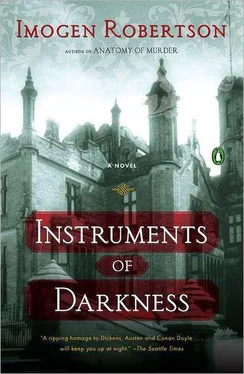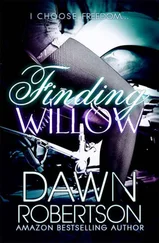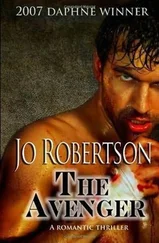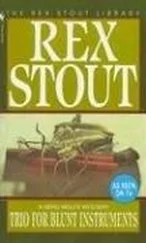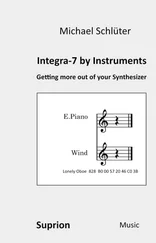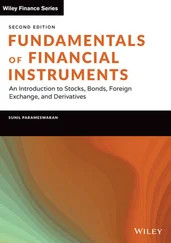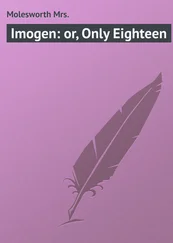Imogen Robertson - Instruments of Darkness
Здесь есть возможность читать онлайн «Imogen Robertson - Instruments of Darkness» весь текст электронной книги совершенно бесплатно (целиком полную версию без сокращений). В некоторых случаях можно слушать аудио, скачать через торрент в формате fb2 и присутствует краткое содержание. Год выпуска: 2011, Издательство: PENGUIN group, Жанр: Исторический детектив, на английском языке. Описание произведения, (предисловие) а так же отзывы посетителей доступны на портале библиотеки ЛибКат.
- Название:Instruments of Darkness
- Автор:
- Издательство:PENGUIN group
- Жанр:
- Год:2011
- ISBN:нет данных
- Рейтинг книги:5 / 5. Голосов: 1
-
Избранное:Добавить в избранное
- Отзывы:
-
Ваша оценка:
- 100
- 1
- 2
- 3
- 4
- 5
Instruments of Darkness: краткое содержание, описание и аннотация
Предлагаем к чтению аннотацию, описание, краткое содержание или предисловие (зависит от того, что написал сам автор книги «Instruments of Darkness»). Если вы не нашли необходимую информацию о книге — напишите в комментариях, мы постараемся отыскать её.
Instruments of Darkness — читать онлайн бесплатно полную книгу (весь текст) целиком
Ниже представлен текст книги, разбитый по страницам. Система сохранения места последней прочитанной страницы, позволяет с удобством читать онлайн бесплатно книгу «Instruments of Darkness», без необходимости каждый раз заново искать на чём Вы остановились. Поставьте закладку, и сможете в любой момент перейти на страницу, на которой закончили чтение.
Интервал:
Закладка:
She sighed and flicked back through the yellowing pages.
“Here. ‘Her body was quite cold, and her dress damp with dew. . One stab wound. . ’ ”
“One? The squire spoke of many, of a frenzied attack.”
“More dramatization on his part, perhaps. One wound through the chest between her fourth and fifth ribs to her left.”
“The heart. She would have died at once if the blade were long and sharp.”
Harriet let her finger slip down the page. “Here. . ‘belly swollen with child …’ there at least the squire was accurate. A white scratch on her neck, but it had not bled.” She looked up at him again. “What is the significance of that?”
“There could be none. But it suggests the injury took place after death.”
“Something taken from round her neck?”
“Something like a locket on a chain, indeed. What color was her hair?”
“She was dark. He mentions her dark hair against the green of the long grasses. The hair I saw in the locket was blond.”
“And do we know the natural color of Lord Thornleigh’s hair?”
“He is powdered in all the portraits I know of, but Hugh’s natural color is fair, as was Alexander’s. Perhaps she was carrying a lock from her lover.”
“The hair of a rich man in a locket she had bought herself. .” Crowther mused. “Perhaps that is why the peddler was caught up in the hue and cry. Some good burgher saw her buying it from him, perhaps. Poor child. Now, Mrs. Westerman, what were you so eager to show me?”
She grinned and turned the pages till she found her place again.
“Here. Shortly after the funeral, Lord Thornleigh came to see Sir Stephen. He said he had heard his name mentioned in connection with the murder, and wished Sir Stephen to make it clear there was no truth in the rumor.”
“And Sir Stephen?” Crowther queried.
“Said Lord Thornleigh could make use of the slander laws if he wished. He adds this. ‘My lord is growing from a wild youth into an unpleasant young man. I pity his tenants, I pity all of us over whom he has power.’ Then there is this. ‘I shall warn Bridges not to be so free with his romanticizing. I like Thornleigh no better than any of his neighbors do, but one cannot speak evils without proof and escape being damned onself, and Bridges will find, as do we all, that the influence of Thornleigh is deep and dangerous.’”
“I grow to like Sir Stephen as I do his son. Will you pass me the diary, Mrs. Westerman. My eyes do not perform well in this gloom.”
She handed the book to him, holding the place open rather awkwardly as she did so. There was a rustle as Crowther took the book, and a folded sheet fell from between the pages.
Harriet pounced on it like a spaniel, but in a moment her face fell again.
“A letter, but some inquiry and dated years later. An accident.”
“I think Sir Stephen must have got his instinct to catalogue from somewhere. Are you sure it is not relevant?”
She opened the paper again, and began to read. Her eyes widened, she turned the page in search of a signature and sighed again at finding none.
“You are right, Crowther. Which is a rather annoying habit of yours.” Crowther had returned to his chair with the old justice’s journal, and bowed to her gently before he took his seat. She straightened out the sheet with care.
“I shall read it to you: twentieth March 1748. ‘Dear Sir, I write with a question, though I fear I must ask for your answer to be delivered indirectly, secretly. I know you will take no pleasure in this. Yet I feel-I fear , sir-that the question must be asked and the answer given. I hope you shall agree. I have heard of the death some years ago of a young girl, Sarah. My question is this: did she have a locket, a thing of silvered tin, on an old pewter chain? And if so, was it taken from her at the time of her murder? It may seem a strange, meaningless pair of questions to you, sir. But they chill me and have pressed me down through many sleepless nights. If you answer yes to both these questions, then I must tell you that I believe I have seen this locket, and seen it among the possessions of a man of power, position and cruel temper. I may be going mad, and imagining demons at the end of my bed, where there is nothing not built by my own nerves. So I must await your answer. If the locket of which I speak did belong to the dead girl, will you wear the fob I enclose on your watch chain for a few days? I shall certainly see you in that time, and if you give me an answer in this manner I shall write again, and give you the name I dare not form on this paper now, and let you know where the locket may be found.’”
Harriet looked up. Crowther was a gray shadow in the gloom, his fingers tented in front of him.
“Yes, I would say that is relevant. Is there nothing further? No note from Sir Stephen?”
“Not here. Where would your observers write their thoughts and actions?”
Crowther turned to the last pages of the journal he held on his lap.
“The system holds. Here, on the last pages of the book. My turn to read to you now, madam: ‘I place this letter alongside my journal for the year of Sarah Randle’s murder. I believed, still believe, that it was written by Lady Thornleigh, whose tragic marriage I observed, and whom I could not help. I wore the fob as requested from the moment I received the note, but no further communication arrived. I had been wearing it for two days when Lady Thornleigh suffered her tragic, fatal fall. I have drawn my own conclusions, and leave it to any future reader of these words to do the same. May God have mercy on their souls.’”
He closed the pages and shut Sir Stephen’s words away from the light once more, then looked across to see Harriet staring blindly out toward the windows, the faint flicker of greenery and sun at the edges of the shutters. The summer afternoon light softened the outline of her face, but he could still see one tear sliding down her pale cheek.
4
It took Daniel Clode far longer than he had expected to cross London. In the end, he left his horse in a respectable place on the edge of the city, hoping to travel faster on foot. It was already well past noon, and the hope was a vain one. Even before he realized the scale of the chaos that was running across the city in blue waves, he realized he would have trouble finding his way. His geography of the city was hazy at best, and he soon found himself in a tumbling network of streets and buildings and noise that left him startled and nervous. Twice he ended up returning to the same square when he was sure his direction had been due west. Here, in front and behind him, were things he had only read about. London was a harsher place than he had remembered.
The young man began to wonder if Crowther and Mrs. Westerman had chosen him wisely, after all. He had visited the city only once before, a trip organized by his uncle on the graces of one of his better clients when he was a boy. They had traveled through the streets in a carriage. Daniel had hung onto the edge of the rattling vehicle and watched the people swarming past him with wide and curious eyes. He had seen a man, dressed as splendidly as a picture book, being jostled by a group of ragged-looking boys, their hoots and calls echoing as they waved his own handkerchief at him in farewell. He had seen animals driven through the streets, lifting their tails and fouling the road as gentlemen on high-stepping horses that looked like unicorns in disguise to him whipped them casually out of the way. He had seen the mackerel- and milk-sellers screaming their wares, and against the white stone walls, small groups of men huddled over bottles and dice. He leaned out a little way as they passed, and a woman, her pockmarks not fully concealed by ragged patches and dead white make-up, had reared up under the window and patted his cheek with her bony hand. And laughed at his horror and embarrassment, displaying the stumps of her last black teeth.
Читать дальшеИнтервал:
Закладка:
Похожие книги на «Instruments of Darkness»
Представляем Вашему вниманию похожие книги на «Instruments of Darkness» списком для выбора. Мы отобрали схожую по названию и смыслу литературу в надежде предоставить читателям больше вариантов отыскать новые, интересные, ещё непрочитанные произведения.
Обсуждение, отзывы о книге «Instruments of Darkness» и просто собственные мнения читателей. Оставьте ваши комментарии, напишите, что Вы думаете о произведении, его смысле или главных героях. Укажите что конкретно понравилось, а что нет, и почему Вы так считаете.
